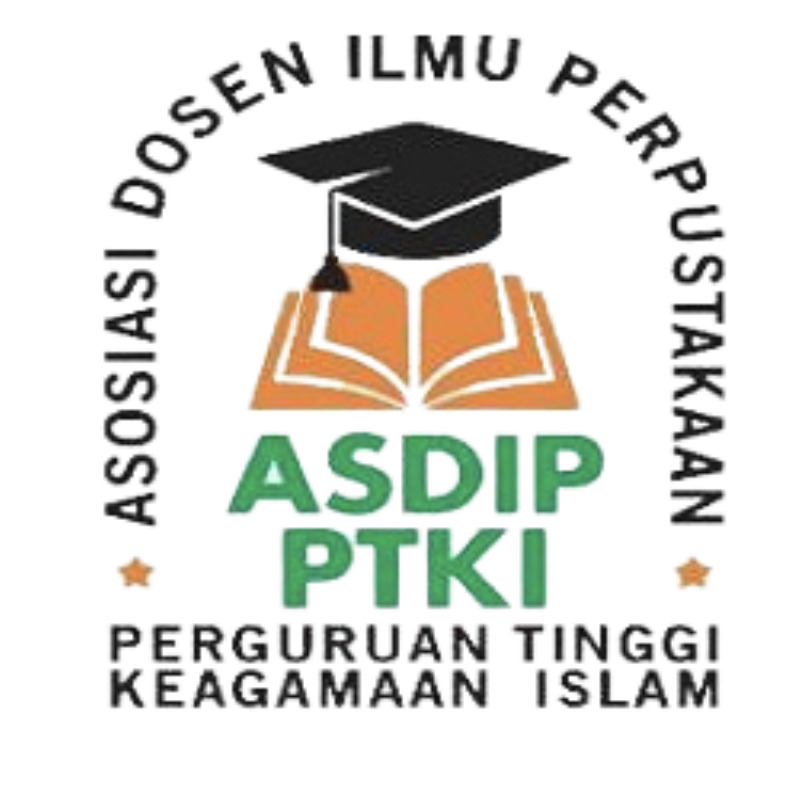Peran Blended Librarian dalam Pelaksanaan User Education Berbasis Daring di Perpustakaan IAIN Kudus
DOI:
https://doi.org/10.29240/tik.v6i1.3423Keywords:
User Education, Blended Librarian, Academic LibrarianAbstract
During the COVID-19 pandemic, user education activities at the IAIN Kudus Library were held online. This activity is a form of adaptation carried out by the IAIN Kudus Library to continue to be able to work effectively and efficiently in serving users during the pandemic. As an activity that is fully online, it requires a very complex role from the librarian so that it can be carried out optimally. This study aims to discuss how the librarian of the IAIN Kudus Library implements the role of the blended librarian in the implementation of the user education activities. This research was conducted with a descriptive qualitative research method. The data collection method used in this research is through the observation method combined with the literature study method. The results of this study indicate that online-based user education activities at the IAIN Kudus Library can run smoothly because librarians at the IAIN Kudus Library can apply the role of blended librarians in carrying out these activities. The forms of blended librarian's roles include academic librarian, IT librarian, communicative librarian, teaching librarian, and manager.
Downloads
References
Andayani, U. (2018). Strategi Pengembangan Kompetensi Pustakawan Akademik sebagai Blended Librarian dalam Penyediaan Layanan Perpustakaan di Era Keilmuan Digital. Al Maktabah : Jurnal komunikasi dan informasi perpustakaan, 17(8), 13–24.
https://doi.org/10.15408/almaktabah.v17i1.11061
Bell, S. J., & Shank, J. (2004). The Blended Librarian: A Blueprint for Redefining the Teaching and Learning Role of Academic Librarians. College & Research Libraries News, 65(7), 372–375.
Bungin, M. B. (2017). Penelitian Kualitatif (9th ed.). Kencana.
Buwana, R. W. (2020). Membentuk Sikap Pelayanan Pustakawan yang Bercitra Positif. LIBRARIA: Jurnal Perpustakaan, 8(2).
https://doi.org/10.21043/libraria.v8i2.8030
Buwana, R. W. (2021). Problem Analysis of Online Based User Education at IAIN Kudus Library During COVID-19 Pandemic. Pustabiblia: Journal of Library and Information Science, 5(1), 23–44.
https://doi.org/10.18326/pustabiblia.v5i1.23-44
Fatmawati, E. (2013). Blended Librarian sebagai Tuntutan Pustakawan Era Digital. Jurnal Perpustakaan Universitas Airlangga (JPUA) Media Informasi Dan Komunikasi Kepustakawanan, Juli-Desember 2013, 3(2), 51–56.
Gunawan, I. (2015). Metode Penelitian Kualitatif: Teori & Praktek. Bumi Aksara.
Hermawan, R., & Zen, Z. (2010). Etika Kepustakawanan: Suatu pendekatan terhadap Kode Etik Pustakawan Indonesia. Sagung Seto.
Indonesia. (2007). Undang undang No. 43 Tahun 2007 tentang Perpustakaan.
Indonesia. (2014). Permenpan RB No.9 Tahun 2014 tentang Jabatan Fungsional Pustakawan dan Angka Kreditnya.
Istiana, P. (2014). Layanan perpustakaan. Ombak.
Lasa HS. (2009). Kamus kepustakawanan Indonesia. Pustaka Book.
Lima, G. A., & Maculan, B. (2017). Blended Librarians in Academic Libraries: A Prazilian Panorama. Revista General de Informacióny Documentación, 27(2). https://www.academia.edu/37046321/Blended_librarians_in_academic_libraries_a_brazilian_panorama
Masruri, A., Kuntoro, S. A., & Arikunto, S. (2016). Pengembangan Kompetensi dan Pendidikan Berkelanjutan Pustakawan PTAIN: Studi Kasus di Perpustakaan UIN Sunan Kalijaga Yogyakarta. Jurnal Pembangunan Pendidikan: Fondasi Dan Aplikasi, 4(1), 1–14.
https://doi.org/10.21831/jppfa.v4i1.9818
Naibaho, K. (2018). Blended Skill bagi Pustakawan Akademik dalam Menghadapi Era Revolusi Industri. Jurnal Pustakawan Indonesia, 17(1).
http://journal.ipb.ac.id/index.php/jpi/article/view/27261
Nugroho, P. A. (2019). Pengaruh Revolusi Industri 4.0 terhadap Wajah Perpustakaan Perguruan Tinggi. JPUA: Jurnal Perpustakaan Universitas Airlangga: Media Informasi Dan Komunikasi Kepustakawanan, 9(2), 63–66.
https://doi.org/10.20473/jpua.v9i2.2019.63-66
Purwono, P. (2013). Profesi Pustakawan menghadapi Tantangan Perubahan. Graha Ilmu.
Qurotianti, A. (2020). Penerapan Blended Librarian di Era Digital (Studi Kasus di Perpustakaan Universitas Muhammadiyah Yogyakarta). Lentera Pustaka: Jurnal Kajian Ilmu Perpustakaan, Informasi dan Kearsipan, 6(1), 13–22.
https://doi.org/10.14710/lenpust.v6i1.27876
Rahmah, E. (2018). Akses dan Layanan Perpustakaan: Teori dan Aplikasi. Kencana.
Reitz, J. M. (2014). Online Dictionary for Library and Information Science. https://products.abc-clio.com/ODLIS/odlis_about.aspx
Soyomukti, N. (2016). Pengantar Ilmu Komunikasi. Ar Ruzz Media.
Suleiman, S. (2012). User Education Programs in Academic Libraries: The Experience of the International Islamic University Malaysia Students. Library Philosophy and Practice (e-Journal).
https://digitalcommons.unl.edu/libphilprac/774
Sutarno NS. (2018). Manajemen Perpustakaan: Suatu Pendekatan Praktik. Sagung Seto.
Suwarno, W. (2016). Library Life Style: Trend dan Ide kepustakawanan. Ladang Kata.
Syarifudin, A. S. (2020). Impelementasi Pembelajaran Daring untuk Meningkatkan Mutu Pendidikan sebagai Dampak Diterapkannya Social Distancing. Jurnal Pendidikan Bahasa dan Sastra Indonesia Metalingua, 5(1), 31–34.
https://doi.org/10.21107/metalingua.v5i1.7072
Zellatifanny, C. M., & Mudjiyanto, B. (2018). Tipe Penelitian Deskripsi dalam Ilmu Komunikasi. Diakom : Jurnal Media Dan Komunikasi, 1(2), 83–90. https://doi.org/10.17933/diakom.v1i2.20
Downloads
Published
Issue
Section
Citation Check
License
Authors who publish with Tik Ilmeu : Jurnal Ilmu Perpustakaan dan Informasi agree to the following terms:
- Authors retain copyright and grant the journal right of first publication with the work simultaneously licensed under a Creative Commons Attribution-NonCommercial-ShareAlike 4.0 International License (CC BY-NC-SA 4.0) that allows others to share the work with an acknowledgment of the work's authorship and initial publication in this journal.
- Authors are able to enter into separate, additional contractual arrangements for the non-exclusive distribution of the journal's published version of the work (e.g., post it to an institutional repository or publish it in a book), with an acknowledgment of its initial publication in this journal.
- Authors are permitted and encouraged to post their work online (e.g., in institutional repositories or on their website) prior to and during the submission process, as it can lead to productive exchanges, as well as earlier and greater citation of published work (See The Effect of Open Access).







 This work is licensed under a
This work is licensed under a 